40 years ago, a beloved Peoria restaurant was the source of a historic botulism outbreak
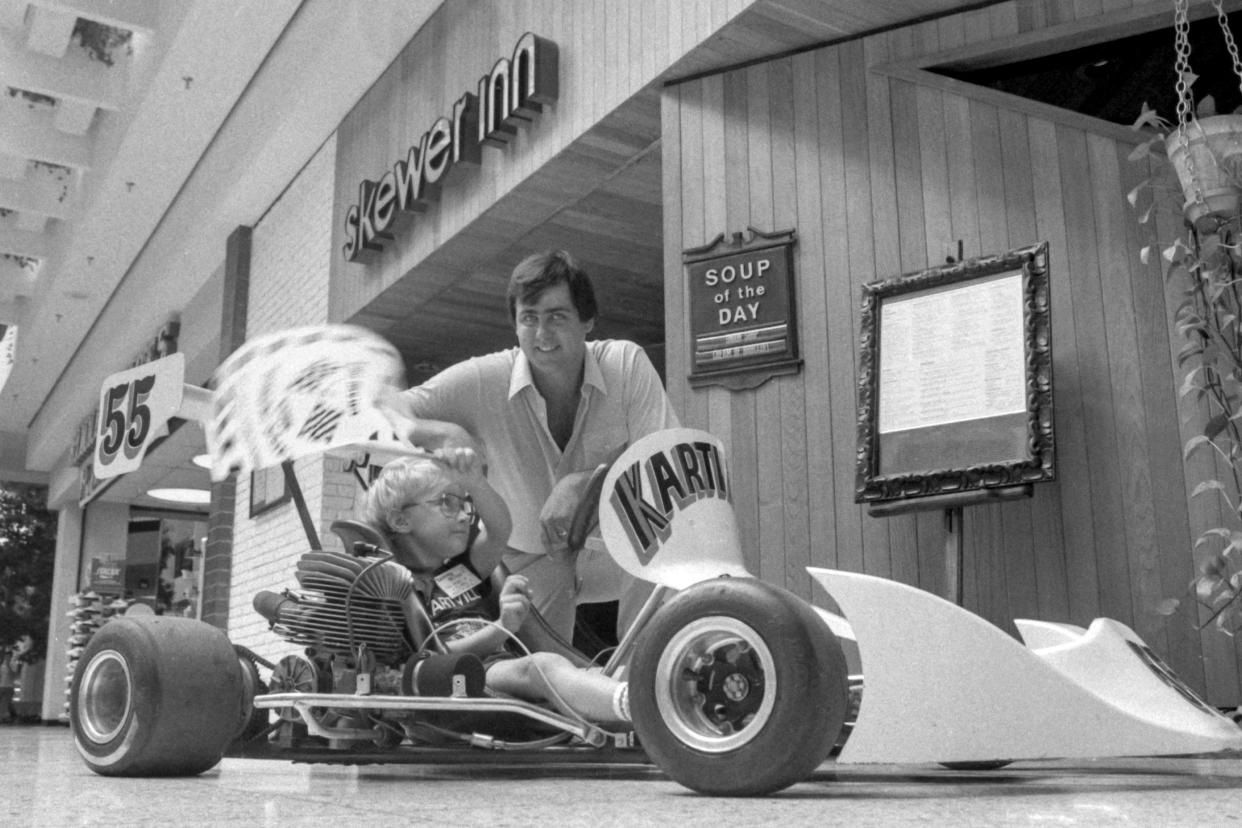
Until 1983, the Skewer Inn was a locally popular family restaurant on the lower level of Northwoods Mall. Then a batch of tainted onions made it nationally infamous.
There was little indication the Peoria restaurant would become the source of the nation's third-worst botulism outbreak of the century. The illness would ultimately strike 28 people. Some would be hospitalized for months. One would die.

But in hindsight, a 1980 advertisement in the Journal Star proved eerily prophetic. The ad promised diners "a new adventure in eating." None could have known that "adventure" would include blurred vision, trouble breathing and feelings of paralysis.
By all accounts, the Skewer Inn was a popular and prosperous business, serving American food with a few then-novel specialties. Readers wrote to the Journal Star's Cook's Corner column asking how to replicate the restaurant's gyro sandwiches. A JS column said the Skewer Inn owner was making more money than he ever had.
That all changed the weekend of Oct. 14, 1983. A reported 37 people became ill after eating at the restaurant. Many were hospitalized with suspected botulism, a rare but debilitating and potentially deadly illness caused by a toxin, often foodborne.
Have a question? If you have questions about Peoria, Ask Dean. He's worked here for a quarter-century
Many of those hospitalized had eaten a patty melt sandwich — a hamburger with cheese and grilled onions on toasted bread — the Journal Star reported. At first, pickles served alongside the sandwiches were suspected. As coverage of the outbreak ramped up, a brief Peoria "pickle scare" occurred: The Journal Star reported that restaurants that served patty melts were fielding many calls from anxious customers.
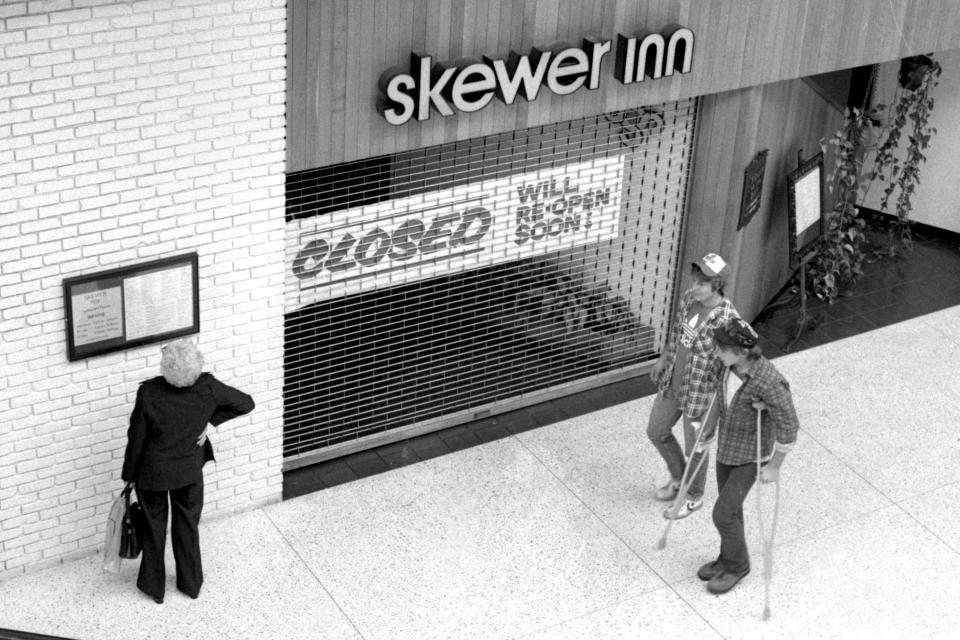
The number of hospitalizations grew. Within a week, the Centers for Disease Control was calling the suspected botulism outbreak in Peoria the country's third-largest of the century.

In January 1984, the CDC issued a report on its investigation into the Skewer Inn incident. It implicated sauteed onions served on the patty melts as the culprit. The CDC said 28 people were clinically proven to have had botulism. It said all but four had eaten patty melt sandwiches. The botulism patients were 20 to 72 years old. Twenty were female, and eight were male. Ten other people ate patty melts but did not get botulism. Until the CDC report, sauteed onions had never been associated with botulism.
In April, a then-73-year-old woman died — the first and only fatality of the outbreak.
The Skewer Inn faced multiple lawsuits and never recovered from the incident, permanently closing in August 1984. In less than a year, "one of the best restaurants in the city" — as one Journal Star writer described it — had become, as another wrote, "the most infamous restaurant in the state."
From the archives
The story dominated local media coverage and made national news. The Journal Star devoted dozens of stories to the outbreak, many on the front page. The Associated Press and United Press International wire services picked up the story, and newspapers across Illinois and the nation ran reports.
Playing in Peoria: When Jimmy Buffett helped bring streaking to central Illinois
On the outbreak's one-year anniversary, the Journal Star began a five-part, front-page series on the incident and its aftermath. Ongoing coverage continued for years as developments and anniversaries occurred.
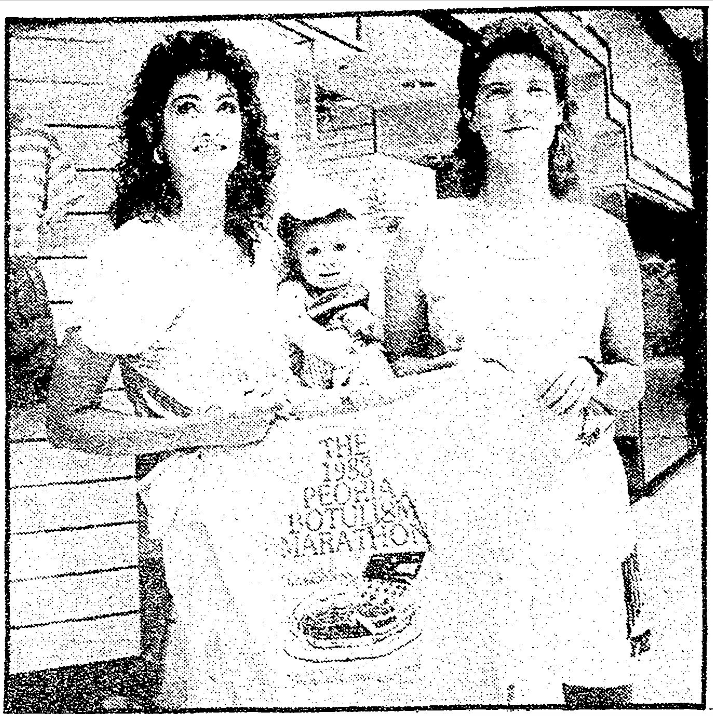
Looking back
In 1983, Mary Lou Dobrydnia was a 29-year-old Peoria resident who taught and coached at Limestone Community High School in Bartonville.
She had often eaten at the Skewer Inn, usually opting for a gyro or the salad bar. On that fateful Friday, Oct. 14, she decided to try something new.
"It was my first and last attempt at a patty melt," Dobrydnia told the Journal Star in 2008. "I haven't had one since."
More: Memories of botulism outbreak linger after 25 years
Mary Lou — who often goes by just Lou — said then that the sandwich tasted fine, and she even offered a bite to her companions. Fortunately for them, they declined.
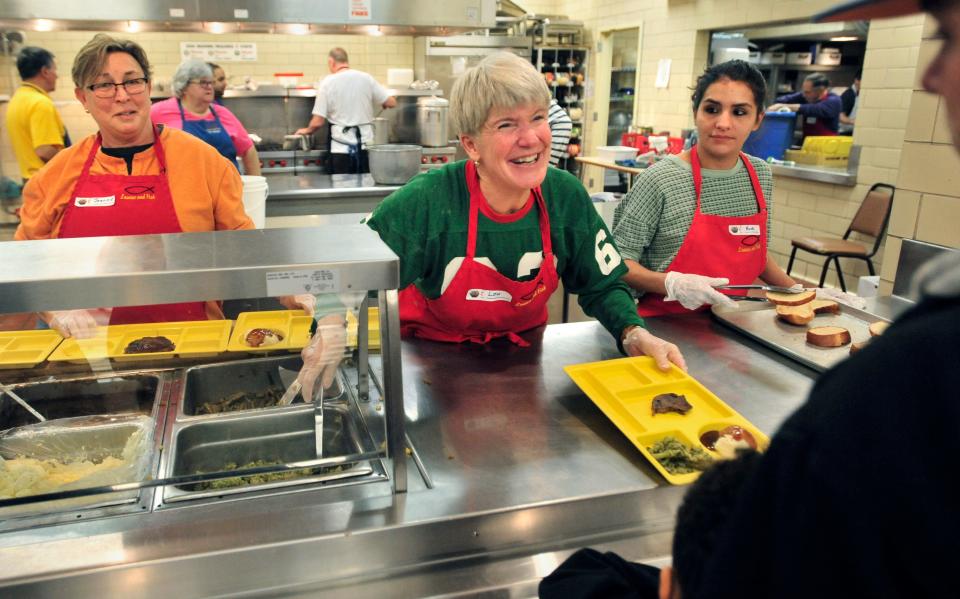
Dobrydnia was one of the 28 people stricken with botulism that weekend. She fell ill that Saturday. On Sunday, she visited an emergency room and was evaluated, but returned home. On Monday, as her symptoms — blurred vision and difficulty breathing — worsened, she was finally admitted to a hospital.
She recently looked back at her battle with botulism ahead of the 40-year outbreak anniversary.
At their worst, she said, her symptoms included feelings of paralysis, and a lack of motor skills. She began to lose muscle mass and muscle memory.
She said she ultimately spent about five weeks at Methodist Medical Center in Peoria, along with several other botulism patients. "We actually had the whole floor," she said. Her hospital stay included several days in the intensive care unit, "and that's where they gave us the horse serum that helped to save us." (The botulism patients were given an experimental antitoxin by the CDC.)
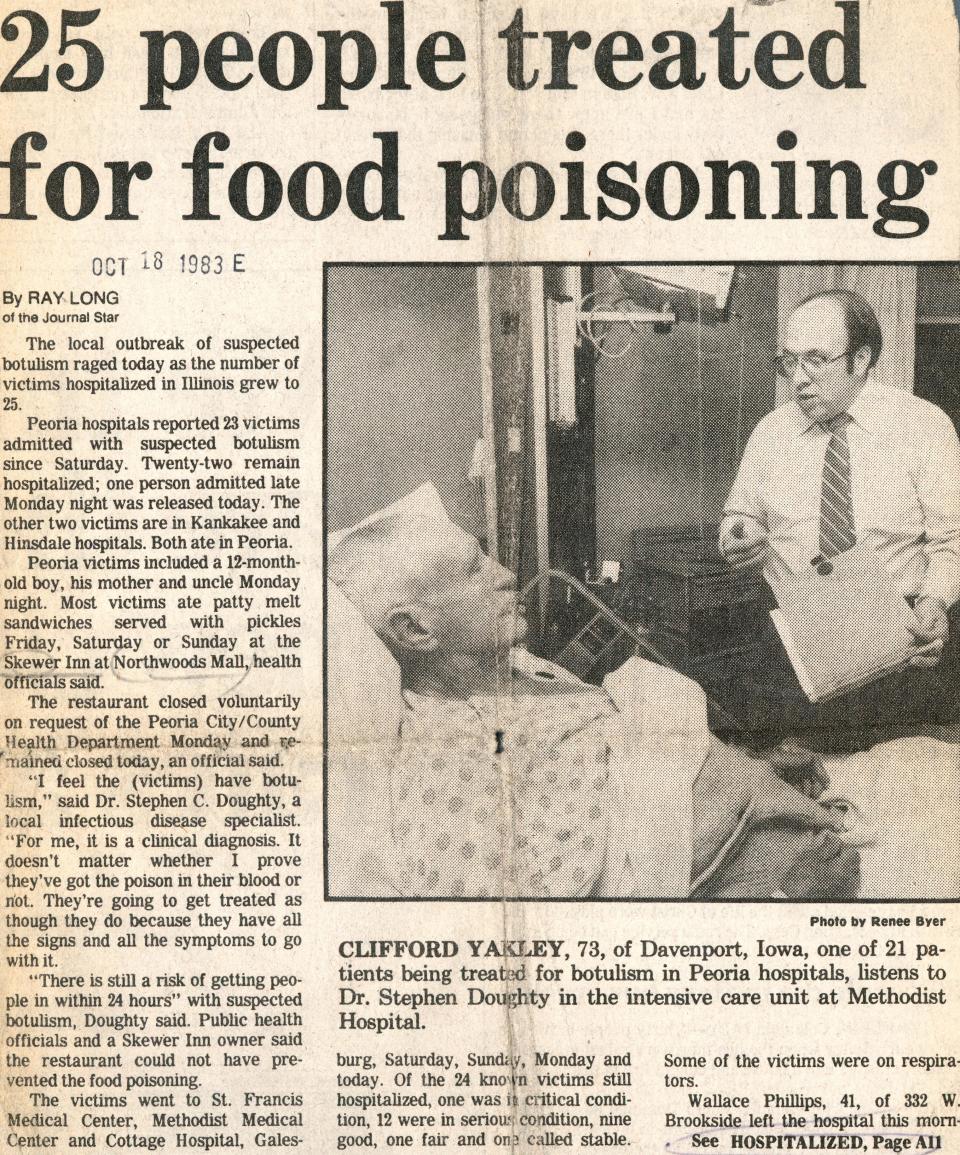
She recalled the media attention as the outbreak went on. "We had nationwide coverage for the outbreak since it was the third-largest at that time," she said. "The Journal Star, every news station from Peoria, Chicago and other states, were providing excellent coverage and giving important updates. I received phone calls from New York, Miami and several other states."
She was among the victims who sued the Skewer Inn. "We had a class action suit against Skewer Inn, but remember, there were 28 of us," she said. "It was a small restaurant with limited insurance, and we had huge medical bills. So, each of us did not get paid a large sum of money, unlike today's lawsuits."
During her recovery, Dobrydnia had to take a leave of absence from work. She also made use of a wheelchair.
Even today, she said, she feels the effects of her bout with botulism. "I choke very easily on everything, including liquids, especially when I'm tired," she said. "Bright light, even sunlight, affects me, so I wear sunglasses a lot and I prefer to keep the lights off. I still walk with a slight limp."
And to this day, she still hasn't eaten another patty melt, or grilled onions. "I try," she said, "but I just can't do it."
Peorians share their memories
Forty years later, the Skewer Inn and the botulism outbreak remain bittersweet memories on social media, including the Retro Peoria Facebook group.
Indeed, the Skewer Inn was among the restaurants that readers missed the most in a 2021 Journal Star story.
Related: Let us remember Peoria's favorite departed restaurants. Where does yours rank?
This article originally appeared on Journal Star: Peoria food poisoning outbreak in 1983 killed one, made national news

